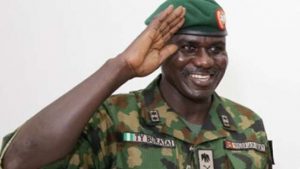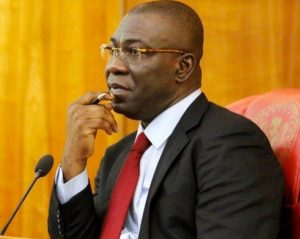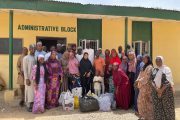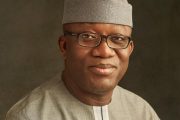Deputy Senate President, Ike Ekweremadu, spoke himself into the sensitivity radar of the Nigerian military during the week and got a reply: count the military out of any conspiracy against constituted authority or subversion of the democratic order. But many are asking: where did the military get the sense that whenever there is a reference to it regarding the stability of the democratic order, it is automatically an invitation to it to stage a coup? Why does the Nigerian military think in such a restrictive sense in a textual world?
Nigeria is at a crossroad. That is what everyone is saying and everyone is engaged in finding what might be the best way to cross the crossroad in his or her own consideration. As a stakeholder in the defence of democracy and of the country, the military is a front ranker in this complex process. It may not operate in the same manner that the media, the civil society, the business community and similar stake holders do their own things but it, nonetheless, has its own contributions. It is stabilising democracy if it organises to defeat Boko Haram or any other insurgencies in the swiftest manner just as it is contributing if it warns troublemakers, a strand the current Chief of Army Staff has spiced by humouring those calculating that Nigeria will break up. He said it could happen but in the next millennium. That is another way of saying it will not happen. It must have been a message well noted in the appropriate quarters.

Gen Tukur Buratai, COAS: author of ‘Nigeria isn’t breaking-up’ statement
Although the military did not directly scold the Deputy Senate President but, next time, it should beware of erecting binaries or giving the impression that whenever there is a reference to it, it is necessarily an invitation to stage a coup against the democratic order. There is something reductionist in thinking that way. Statements drawing attention to the reality of military presence in the context of politicians wilfully crossing the red lines of civilised behaviour could also be a reference to or an acknowledgment that, all over the world, the military has its own ways of pulling the strings from behind, without ever taking over power directly in any industrial society, for instance. What Ekweremadu said must, therefore, not be subsumed under the interpretation that he was canvassing for military rule but must be taken as raw materials for critical reflection about the state of the nation. The outcome of such reflections in the military need not be a coup at all.
The military might have felt the need to re-assure the democratic order that there is no plan to disrupt it, especially as Mathew Hassan Kukah, the Catholic Bishop of Sokoto had also made a similar statement previously. Neither Kukah nor Ike Ekweremadu is an ordinary Nigerian if we can call any Nigerian ordinary at all. Any words from the two are capable of being interpreted to suggest a roundabout manner of preparing the ground for military takeover and could attract unease in many centres of power. But that is if the Deputy Senate President, for instance, wasn’t also making a valid point worth talking about, irrespective of whether one is in his political or ideological camp.

Senator Ike Ekweremadu
It is possible that Senator Ekweremadu went into overdrive because three Senator colleagues of his are at the receiving end of the actions of the governors of Kaduna, Kogi and Kano states in the issue under discussion. But democracy is not madness and any hysteria against executive lawlessness such as overcame Ekweremadu must be contextualised. Europe experienced catastrophe in its wars which are labelled First and Second World Wars. After that, it sat down and said ‘Never Again’. So, once you are seen to be crossing the red lines of the norms of human rights in Europe, they will unite against you and bring you down. Nigeria has also seen war. Nigerians also appreciate that, with about 200 million human beings, the country is too big to experience anarchy. So, there is a thinking that, no matter what happens, disagreement between and among elected officials must not be to the extent that could bring down the democratic order. But in Nigeria today, even those who are no supporters of Senator Rabiu Kwankwaso must be worried that the man cannot travel to the state he ruled for two terms. Similarly, all those who watched the demolition of the house belonging to a Senator in Kaduna on the orders of the state governor must have missed a heartbeat, whether one knows the affected Senator or not. Although those behind these sorts of actions advertise the democratic deficit in them, their actions embody threat signals.
Why would it, therefore, not be a classic case of throwing out the baby with the bath water if this aspect of Ekweremadu’s statement is not read as an attempt at whipping the political class into line. In other words, his statement must be seen in the context in which it was made. It was not in a broad interview with any news medium but a statement in a session in which the issue at stake was the actions of certain elected governors against opponents, actions that crossed the red line of the norms. If we cannot preserve norms, then we cannot speak to democracy. It is as simple as that!




























